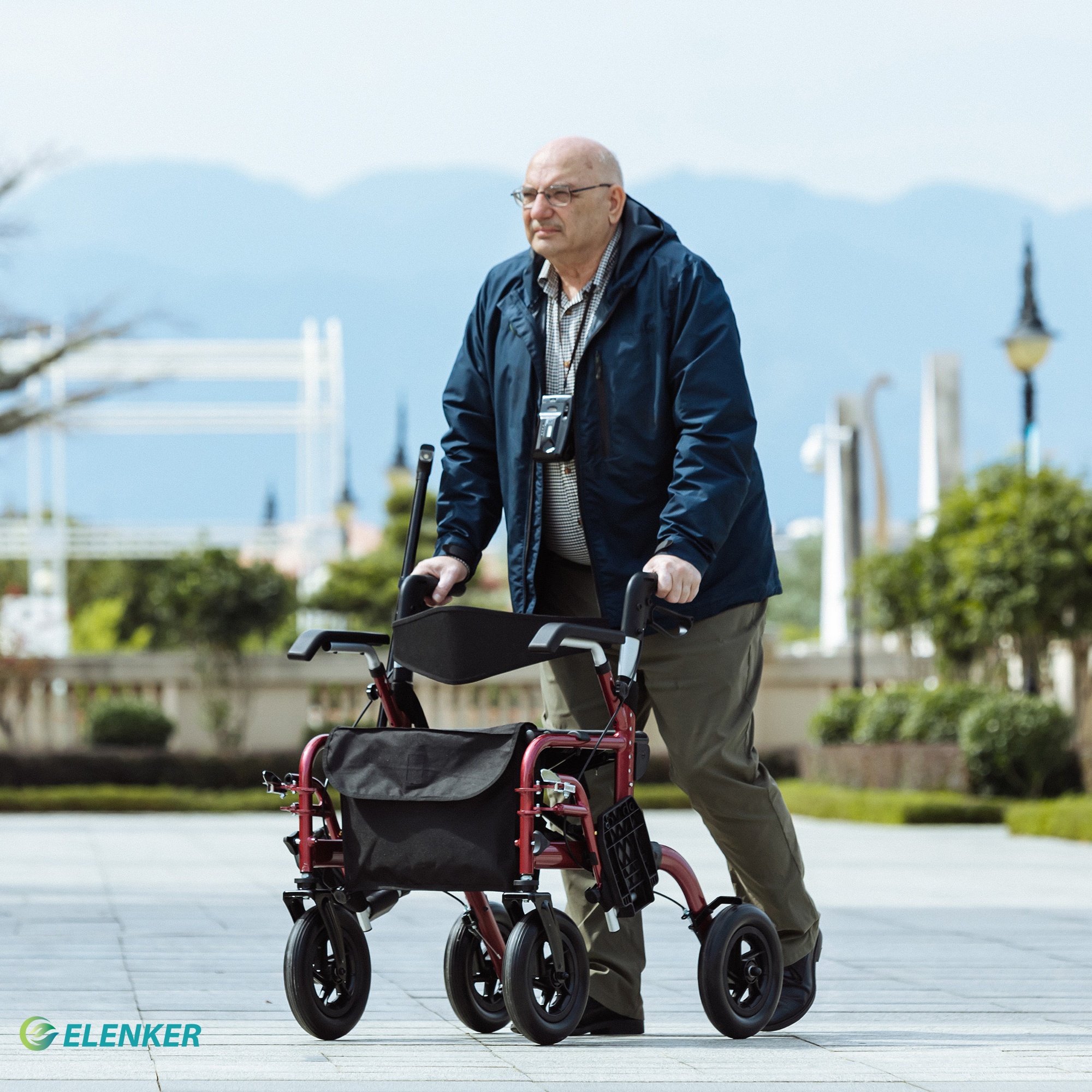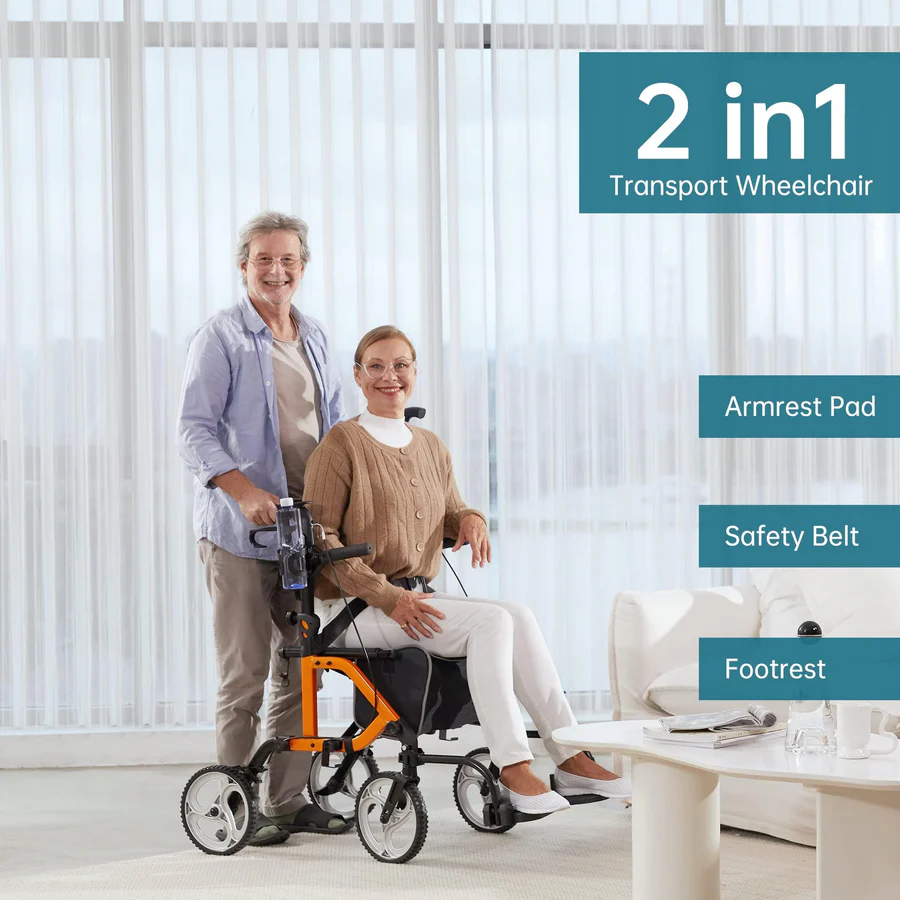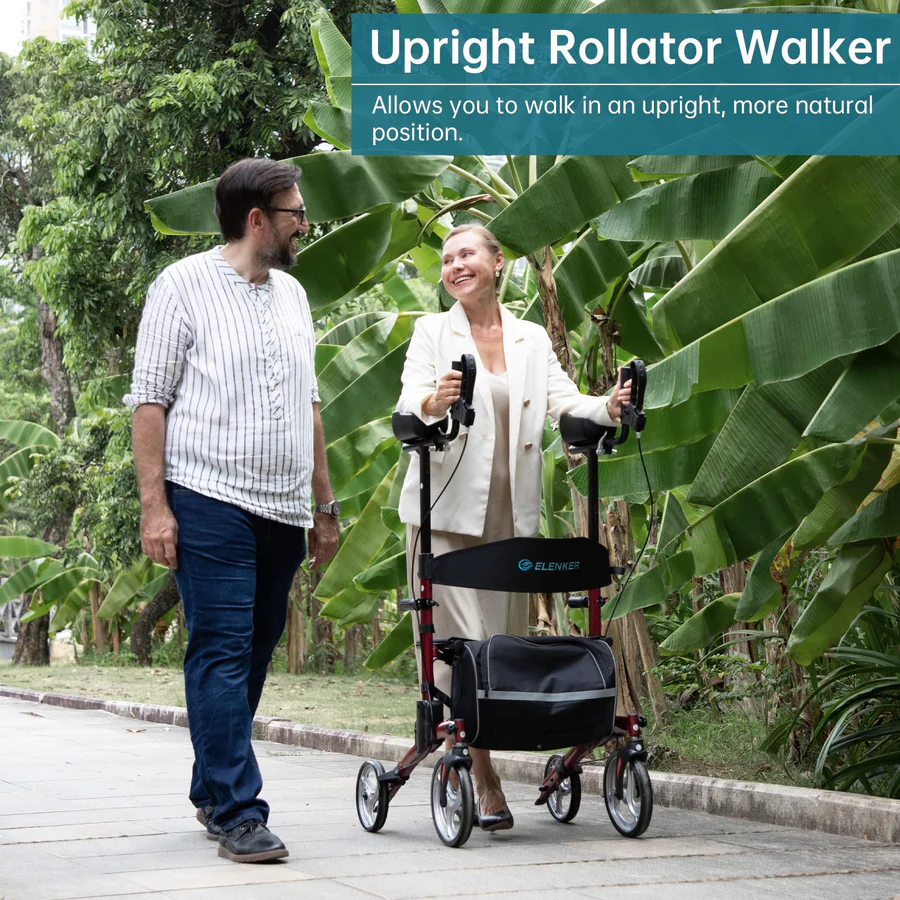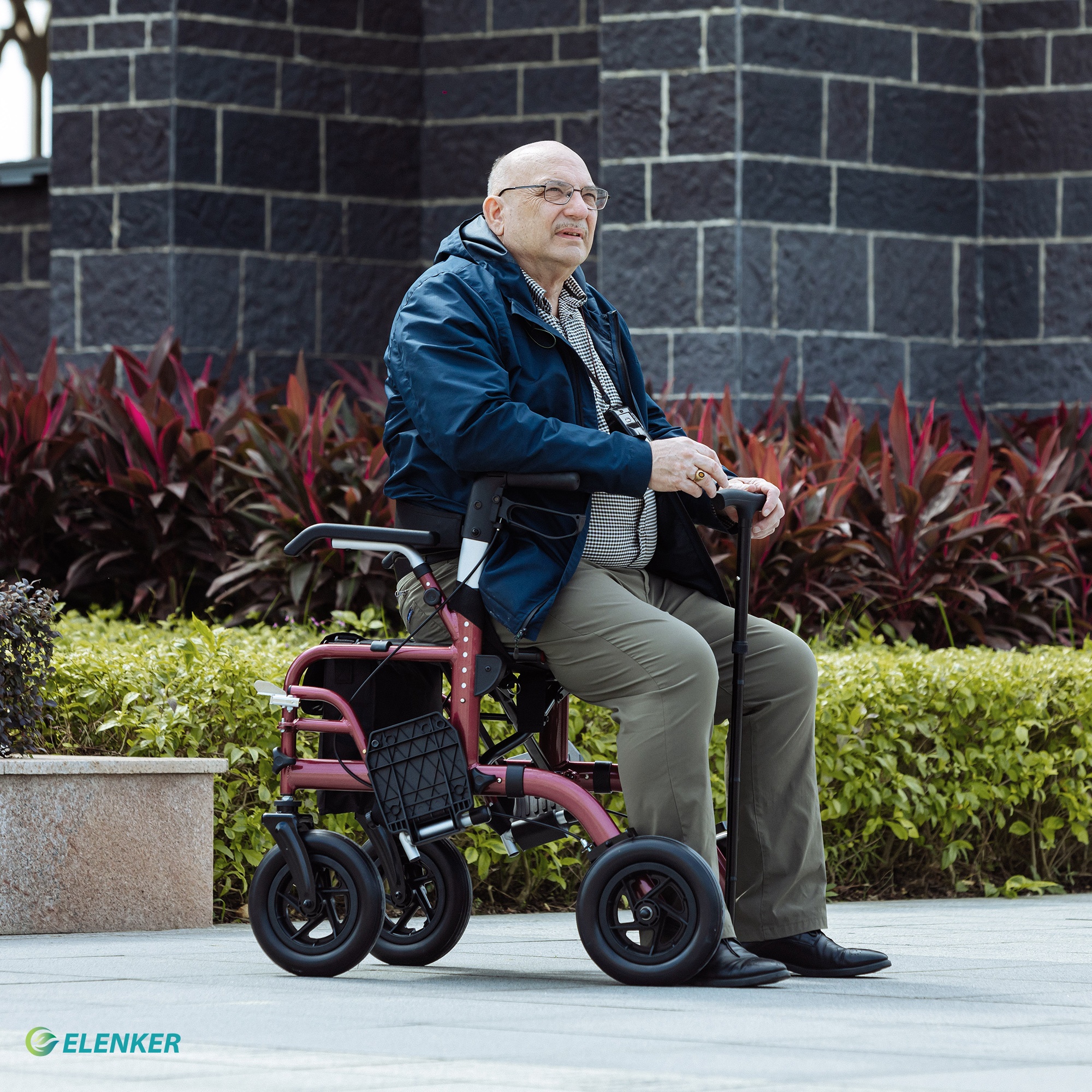Rollator walkers are safe and effective for the elderly, offering stability, comfort, and easy maneuverability. However, proper use of brakes, selecting the right model for terrain, and ensuring adjustability and weight capacity are essential for safety.
How do I choose a right Elenker walker for a senior?
Choosing a right walker for a senior is an important decision, as it directly impacts their mobility, safety, and overall independence. When it comes to mobility aids, Elenker walkers are a great option due to their reliability, comfort, and user-friendly design. But with various models available, how do you know which one is best for…
Are Elenker Elderly Walkers the best Elderly Walkers?
Elenker elderly walkers are a popular choice for seniors who need extra support and stability while walking. They are designed to provide more mobility and independence to people who may be dealing with limited balance or strength. But, are Elenker elderly walkers the best option available? Let’s explore their features, benefits, and some considerations to…
What is the best type of walker for the elderly?
If you’re looking for the best walker for elderly users, you’ve come to the right place. With so many options out there, it can be overwhelming to choose the perfect one. Let’s break it down in a simple and casual way to help you find the best walker for your needs. When it comes to…




